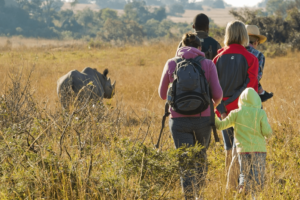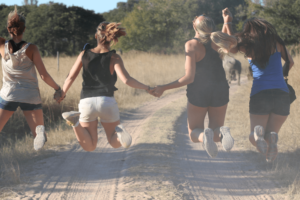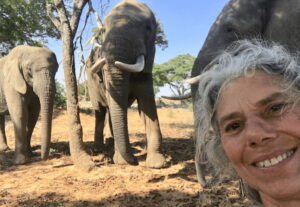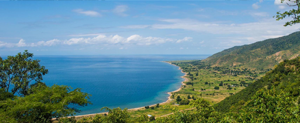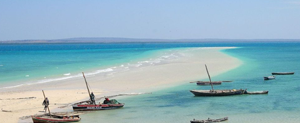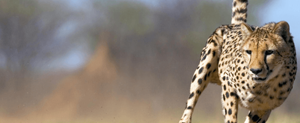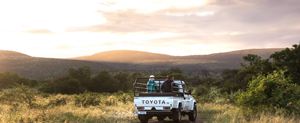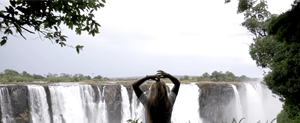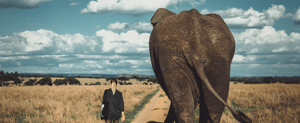Volunteering FAQ
Finding the right volunteer projects in the right location can be difficult when there’s so many to choose from. We’ve tried to cover some common questions about volunteering in Africa on this page.
If you don’t see your question below, please do get in touch!
What types of people volunteer in Africa?
Our volunteer projects attract volunteers from around the world, of all ages and from all walks of life. Everyone has their own story to tell and experience to share. The diverse mix of people include gap year students, career breakers, retired people exploring the world, university groups and even honeymoon couples! Everyone is welcome whether you can only volunteer for two weeks or if you’d like to stay longer and really immerse yourself in Africa.
Is volunteering ethical?
Volunteer tourism has a critical role to play in conservation in Africa. Unfortunately not all volunteer projects are good ones, so we do advise all volunteers to check out the projects they are interested in carefully, and ask lots of questions about the role of volunteers and how their project fees are being used. Take a look at our relevant articles:
- When is a wildlife sanctuary not a sanctuary
- Volunteering myths busted: you’re taking jobs from locals
- 7 ways to choose an ethical volunteer programme
- Volunteering myths busted: volunteering is bad for communities
Why do I have to pay to volunteer?
It’s a tricky concept – paying to work. However, volunteering abroad is a two-way concept where in exchange for a wonderful overseas travel experience, you donate your time, energy and funds to a responsible organisation. Chances are, the organisation you are working for has precious few resources and will not be in a position to cover the (significant) costs of feeding, housing and transporting volunteers, without using money that should be earmarked for the work they are doing.
See our related article:
What type of volunteer projects will I be working on?
What you will be doing depends on what type of project you choose. The foundation of our programmes is conservation, which could be conservation through working with wildlife, or conservation through education and community projects. If you are working on one of our community volunteer projects, you will work alongside community leaders, on projects identified by communities, according to the specific needs of their area. This could include agriculture and horticulture projects, skills training, early childhood development through literacy; family support in the form of meals and homestead work; or practicing conversational English with older children.
If you are working on our conservation programmes, your role will be diverse. The volunteer work could include working alongside permanent research staff; data collection; tracking and monitoring game; tagging wildlife (on land and in the ocean!), or working with animals due to be released into the wild.
Do I need experience or special skills?
Our volunteer projects accommodate all levels of skill and expertise. We ask that you come with enthusiasm, ideas, flexibility and patience (this is Africa and time is different here!), and be ready with an open mind to participate in all the activities. Your skills and experience from living in the first world usually mean you can help in most situations, whether it is card tricks, building or computer skills, teaching children new songs or drawing. Every skill is valued and useful.
How long are volunteer work days?
Schedules are designed to be enjoyable and fun, and allow some down time over lunch and the heat of the day. Most projects will start early, around 6am and some, like the Endangered Wildlife Conservation Programme, will begin before the sun comes up!
Do I get any time off?
Most projects will have a 5 or 6 day working week, with one day off to relax. However, for projects where animal care is involved, e.g. Primate Conservation or the Namibia Wildlife Sanctuary, the animals need to be fed every day, so volunteers will work on a rotation basis to ensure that everyone gets at least one full day off per week.
What locations can I visit?
Our volunteer projects are based in South Africa (Waterberg and KwaZulu Natal), Zimbabwe (Harare, Bulawayo, Hwange and Victoria Falls), Mozambique (Inhambane and Vilanculos), Malawi (Lilongwe) and Namibia (Windhoek, the Namib Desert area and Damaraland).
Read our related blog posts:
Will I get to interact with animals
At our animal care volunteer projects, (Primate Conservation and the Namibia Wildlife Sanctuary), volunteers are responsible for the care and feeding of animals which are either to be rehabilitated or are permanent residents of the sanctuary. However, there will still be some animals which are not handled – perhaps because they are preparing for release, or because they should not be habituated.
On our Rhino & Elephant Conservation and Horse Riding & Rhino Conservation Programmes, some of the rhinos and elephants are habituated, so volunteers are able to get close them – which is useful for observational and behavioural studies. At our wilderness projects (Big 5 Conservation, Zimbabwe, Endangered Wildlife Conservation, Large Carnivore Conservation, Marine Conservation, Wildlife Warriors and Elephant Conservation & Community Outreach) the animals you will encounter are most definitely wild and cannot be touched or approached at all.
Are your volunteer projects safe?
It is extremely unlikely that you will encounter any security or safety issues while you are in Africa, and we advise that you exercise the same levels of caution as you would in any poor, third world country – don’t wear excessive or expensive jewellery, keep hold of your bags and don’t travel after dark (more because of animals, potholes and people in the road, than for personal safety reasons). Be aware of your surroundings and try not to venture out in high density areas on your own.
At our wildlife and wilderness projects, volunteers are housed in secure areas within the reserve or conservancy. While you are at your placement, you will be supervised by project staff and receive a full orientation into the local area, places to visit and how to behave. All our staff have first aid training and are fully prepared for medical emergencies. If you have any concerns before you travel, please get in touch and we can talk you through any specific issues you might be worried about.
Is working with wild animals safe?
At our wilderness volunteer projects (Big 5 Conservation, Zimbabwe, Endangered Wildlife Conservation, Large Carnivore Conservation, Marine Conservation, Wildlife Warriors and Elephant Conservation & Community Outreach), staff are fully trained in interpreting the behaviour of wild animals and most are also qualified field guides. However, it is important to remember that when you are in the bush there are dangerous animals around, both large and small. Just about any animal can be dangerous if it feels threatened, so it is imperative that volunteers listen to project staff at all times. In wilderness areas you will usually monitor wildlife from a vehicle, driven by project staff who are trained to keep volunteers away from dangerous situations.
If you respect the bush and the animals, and follow the instructions of project staff, there is no reason why it is not safe to volunteer around wild animals.
How many other volunteers will there be?
Volunteer numbers will depend on the time of year you choose to book and which project you want to join. June – September is usually the busiest time of year to join.
Where does my money go?
This is the first question a volunteer should ask of an organisation or agent when selecting a volunteer project. There are unfortunately many programmes where your money does not end up supporting the wildlife or cause that you thought it did.
Your money is used to pay for your accommodation and meals and staff at the house and camp. It is used for project running costs, such as fuel for vehicles and maintenance of equipment and machinery. Your fees enable the purchase of new equipment and materials. The greatest benefit of paying to volunteer is that a significant part of your fee should be used to ensure that the work you are supporting can continue to run after you have left. The funding that volunteers provide mean that organisations can stop scratching the surface, and plan for the long term.
Read more about how your project fees are spent.
Why do I have to pay to volunteer?
It’s a tricky concept – paying to donate your time and energy. However, volunteering abroad is a two-way concept of giving and receiving – exchanging a wonderful overseas travel experience for donating their time, energy and funds to a responsible organisation. Chances are, the organisation you are working for has precious few resources, and will not be in a position to cover the (significant) costs of feeding, housing and transporting volunteers, without using money that should be earmarked for the work they are doing.
See our related article:
What’s included in the project fee?
All our project fees (unless otherwise stated) include three meals per day, unlimited tea, coffee, juice and water, accommodation, airport transfers (sometimes on set days and times), 24 hour support from local staff, and all the equipment you need to do your work.
How long should I book in advance?
If you would like to volunteer during busy months (June – September), we advise that you aim to book 3-6 months in advance. We can accept volunteers up to the very last minute, but there may be very limited availability. If you book less than 30 days in advance, you will have to pay your full volunteer fee up front.
What if I need to cancel my placement after I’ve paid?
You should ensure that you have travel insurance in place which covers changes to your plans caused by illness or unforeseen circumstances. If you need to cancel your placement, check the terms and conditions on your invoice or on the terms and conditions page.
How do I book?
- Decide on the right project for you – let us know if you have any questions at all which aren’t answered on the project page or on this page. We will check availability and provisionally book you a place.
- Once you have decided on your dates, we will ask for a non-refundable $300 (or £300 if you’re joining a program with fees in GBP) deposit. The balance is then due 60 days before your project starts. If you are booking within 160 days of the date of travel, you will be required to make full payment immediately.
- Payments can be made by bank transfer or via credit or debit card using an online payment service.
- Once the deposit is received a comprehensive pre-departure pack will be sent by email to help you prepare for your trip and you will also receive an invoice for balance of the project fee.
- If you have any questions during the project, please get in touch with a member of our team who will be more than happy to assist you.
For our full terms and conditions, please click here.
What clothes do I need?
What you need to pack will depend on which project you choose and the time of year. Please also consider what is appropriate clothing for working in communities and in the bush. We will send you a detailed pre-departure pack with packing lists included. See also our article:
What to pack for your volunteer experience.
What can I bring to donate?
Individual projects will have their own wish lists – please enquire if you would like to bring items to donate.
Are there books and films I should watch?
There are many interesting books available to give volunteers an insight into the fascinating and beautiful continent of Africa. A selection are listed below.
Books about Africa:
- A Long Walk to Freedom – Nelson Mandela
- Don’t Lets Go to the Dogs Tonight – Alexandra Fuller
- North of South – Shiva Naupaul
- Scramble for Africa – Thomas Packenham
- The Power of One – Bryce Courtenay
- A Grain of Wheat – Ngugi wa Thiong’o
- I Write What I Want – Chris Hani Diaries
- A Safari Companion – Dick Estes
- Dinner with Mugabe – Heidi Holland
- Beyond Tears: Zimbabwe’s Tragedy – Cathy Buckle
Films about Africa:
- Hotel Rwanda (2004)
- Out of Africa (1985)
- Tsotsi (2005)
- The Last King of Scotland (2006)
- Blood Diamond (2006)
- Shooting Dogs (2005)
Books and films about our projects:
- Extinction is Forever – Allan Munn (written about our Community Outreach Programme manager at Greenline in Zimbabwe – Charlene Hewat)
- Imire: The Life and Times of Norman Travers – Cathy Buckle (written about the founder of our Rhino & Elephant Conservation Programme in Zimbabwe)
- There’s a Rhino in my House (2011) – a touching documentary about our Rhino & Elephant Conservation Programme.
All our project accommodation is in safe locations, and project staff will either be on-site or very close by. Volunteers will usually sleep in shared dorm style accommodation or in twin or double rooms. Many have their own outdoor pool and communal areas and most projects have a cook who will prepare and serve meals. In addition, project staff are always on hand to deal with any problems that you might have while you are on your programme.
Can I share a room with my friend / partner?
Most projects will offer twin or double rooms which can be requested by couples and those travelling with a friend. Availability is generally on a first come first served basis when booking.
Can I request a private room?
You can request a private room but allocations to couples and groups will be given priority. If you do want a private room, we will do our very best to accommodate you. Sometimes there may be a small supplement to pay.
What type of food will we eat?
All our projects provide three meals a day, usually prepared by a cook, but sometimes volunteers will be given food to prepare for themselves and the group (in this case, menus are provided). Meals are simple but wholesome and usually consist of cereals, bread, eggs, fruit and yoghurt for breakfast; ham, cheese and salads for lunch and a cooked dinner.
Can you cater for special dietary requirements?
Yes, absolutely. Vegetarians, vegans and coeliacs can be catered for – please let us know when booking. However, some items, particularly gluten free items (flour, pasta etc) are expensive and hard to find in Africa, so we may ask you to bring a supply of any special items from home. You may also want to pack a few snacks (nuts, seeds, dried fruit etc), as these are generally very expensive.
Will there be WiFi?
Some of our projects have WiFi (usually at an additional cost), but most volunteers choose to buy a local SIM card from the airport and use data bundles – these are a cheap and easy way to access social media and Whatsapp. Bear in mind the limitations of the internet in Africa, and understand that it may be slow and intermittent.
Do I need a visa?
Each nationality and each country has different entry requirements, so you must check with the relevant embassy for the most up to date information before you travel.
- Volunteers in Zimbabwe can usually get a tourist visa upon arrival at the airport, but you should still check before you travel in case your nationality is exempt.
- Volunteers in Namibia can also usually get a visa on arrival for stays of less than 90 days.
- Volunteers in Mozambique may need to get a tourist visa in advance. We can assist you with this, and provide you with the necessary paperwork.
- Most volunteers traveling to Malawi are exempt from visa requirements!
What vaccinations do I need?
For all our projects, we recommend you first visit the UK government website Fit For Travel, and find out the recommended vaccinations for the country and area you are planning to visit.
Is there malaria at the project site?
The following projects are located in designated malaria areas, where anti-malarial prophylaxis will be required:
- Big 5 Conservation, National Parks, Zimbabwe
- Community Outreach, Victoria Falls
- Marine Conservation (you may need alternative anti-malaria medication, as some cannot be taken while diving).
- Humpback Whale Research
- All volunteer projects in Malawi
If your project is not on this list, you should still consult your GP or travel clinic for up-to-date advice. If you are travelling outside of your project, be aware you may travel into a malaria area, so may need to consider taking medication for that part of your trip (e.g. if you want to visit Victoria Falls). We are not qualified to give medical advice, so it remains your decision whether you take anti-malaria medication at any project.
Do I need a rabies vaccination?
Rabies vaccinations are recommended for the following projects:
- Namibia Wildlife Sanctuary (recommended but not compulsory)
- Primate Conservation Zimbabwe (recommended but not compulsory)
- Malawi Wildlife Sanctuary (rabies vaccination is compulsory)
Where should I fly to?
For projects in South Africa, you should arrive into O.R. Tambo Airport in Johannesburg (JNB) or Richards Bay (RCB). For Zimbabwe projects, you will either fly into Harare International (HRE) or Victoria Falls International (VFA), depending on which project you are joining. If you are joining our Namibia programmes, you should arrive at Windhoek Hosea Kutako (WDH); and for Mozambique, you will fly via Maptuo to either Vilanculos (VNX) or Inhambane (INH). For volunteer projects in Malawi, please fly into Lilongwe Kamuzu International Airport (LLW).
Will I get picked up from the airport?
All our project managers will collect you from the airport upon arrival and transfer you safely to the project. There will often be other volunteers arriving at the same time, so you can start making friends straightaway. You will be given clear instructions before you travel about where to meet project staff and other volunteers at your arrival airport.
Do I need travel insurance?
Travel insurance is compulsory at all of our projects and should cover you for all medical requirements that could arise. It should also cover you for full air evacuation and repatriation. Please also ensure that it covers your baggage and any activities or work you are likely to participate in. We also suggest that your insurance covers you for fees incurred for having to leave the project early for medical reasons. Once you are on a project, if you have to leave early your fees will not be refunded.
We recommend World Nomads for your travel insurance.
Can you cater for group trips?
Yes! All our volunteer projects will accept groups – please contact us for costs and options. Many of our group trips can be customised.
How many people can you accommodate?
Depending on what you want to do and where you want to go, we can accommodate groups of all sizes. Let us know what your plans are and we can give you some recommendations! We recommend groups add on additional excursions and tours to give a completely rounded experience.
Are families welcome at your projects?
Absolutely. We have a number of carefully selected family volunteer projects where we know families will have an amazing time. Visit our Family Volunteering page for more details. We recommend that families add on a tour or two to their volunteering experience!
What is the minimum age of child volunteers?
The minimum age will depend on the project you choose, but we do have programmes that will accept children as young as five. Check out our Family Volunteering page for more details of our child-friendly volunteer projects.

